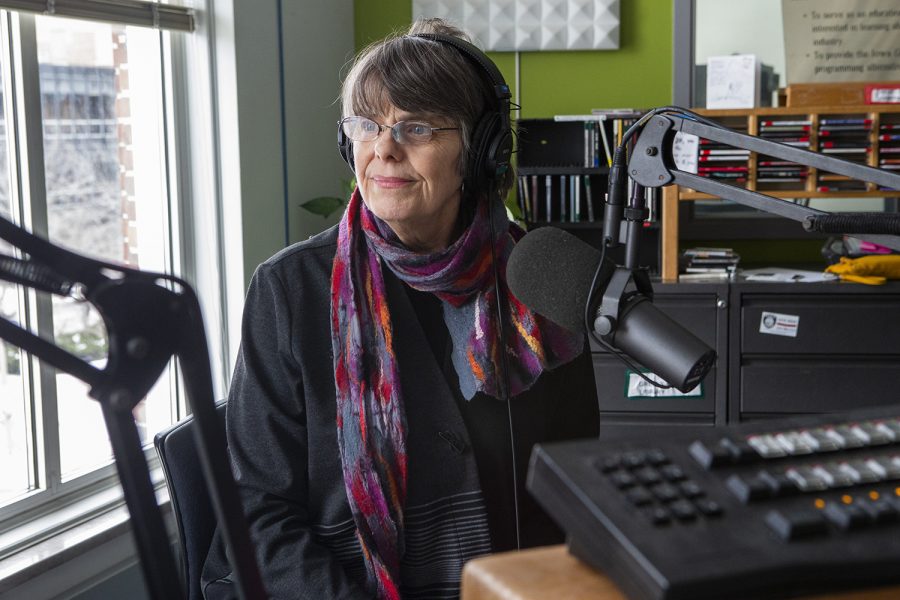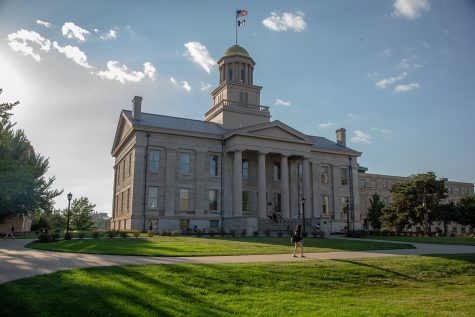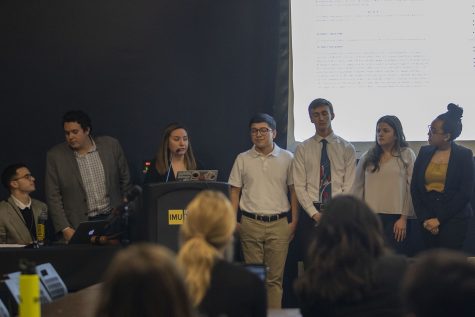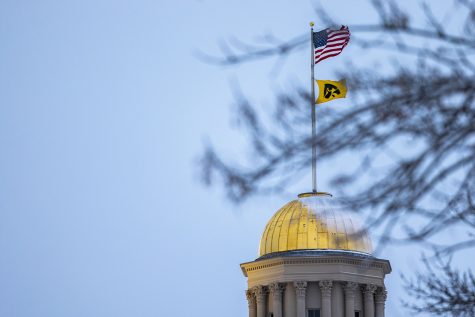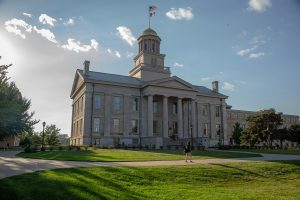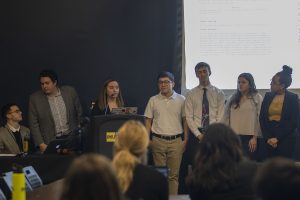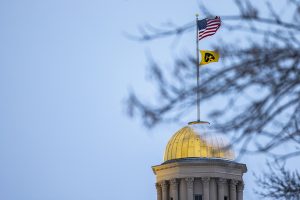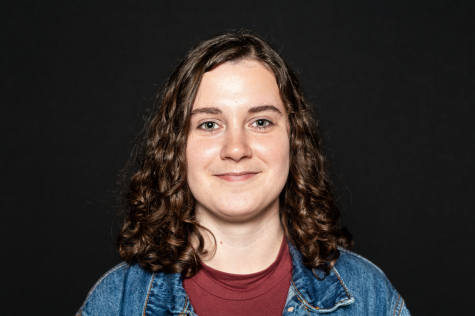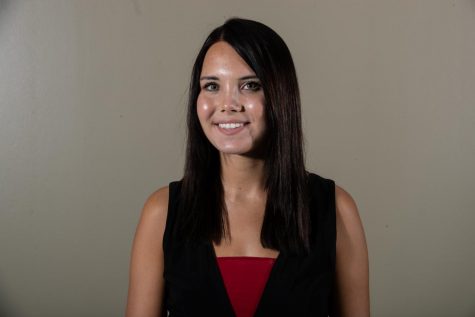As First Amendment debate surges at UI, Tinkers push for free speech
Individuals at the center of a 50-year-old Supreme Court case that defined First Amendment rights for public-school students visited the UI on Tuesday.
Mary Beth Tinker listens to a question during an interview at the KRUI studio on Tuesday, February 26, 2019. Mary Beth and John Tinker wore black armbands to school in protest of the Vietnam War in the 1960s, leading to the Tinker vs. Des Moines court case in 1969.
February 27, 2019
How “free” should Hawkeyes be to exercise their First Amendment right of free speech?
Amid campus-wide debate over free expression, the individuals at the forefront of the landmark Tinker v. Des Moines Supreme Court case said during a visit to the University of Iowa campus Tuesday that they support a free and respectful exchange of ideas, no matter the viewpoint.
The University Lecture Committee brought the Tinkers to campus as they tour the country to support students’ First Amendment rights in celebration of the 50th anniversary of the Supreme Court ruling.
In 1969, the Supreme Court ruled that the Des Moines Independent School District had unconstitutionally banned armbands that some students wore to silently protest the Vietnam War. The historic ruling defined students’ First Amendment rights in public schools.
The Tinkers’ visit comes after a number of events have prompted discussions surrounding the First Amendment’s role on college campuses such as the UI, including:
• A federal court ruled the UI unequally applied its human-rights policy when it revoked a student group’s registered-organization status because of a requirement that leaders follow the group’s faith statement
• The UI paused a workshop on white identity, prompting concerns from some that this was a blow to the ability to have candid conversations about race on campus
• A student organization held a protest on the T. Anne Cleary Walkway over the issue of border security, which many community members — particularly Latinx students — deemed hateful
• Students started the #DoesUIowaLoveMe movement to share their experiences at the UI about racism, sexism, homophobia, and other forms of discrimination
Mary Beth Tinker, who was 13 at the time she was in the landmark armband-case spotlight, said the controversies over the freedoms the First Amendment provides are not unique to the UI.
“It’s a huge issue on college campuses across the country as far as what kind of speech should be protected by the administration, how much money should be spent to bring out security to protect unwelcome speech or hateful speech,” she said. “There is no real legal definition of hate speech, but I think we all know what that is like.”
She said the question is about the bottom line of whether people should have a right to discuss issues such as racism and sexual misconduct.
“… Do we need to talk about these things even though they are controversial?” she said. “I say yes, we have to find a way to talk about controversial things and not just sweep it under the rug.”
People may argue that speech itself is violent, she said, but the limit of free speech in the courts generally has been the imminent threat of violence.
“I still kind of stick to the idea that violence is physical violence, and that speech that is not an imminent threat to violence should be allowed, and that the answer to that is to speak more,” she said. “I know a lot of marginalized communities … who have been oppressed, some people in those groups feel like they don’t always have the chance to speak more or to counter with more speech.”
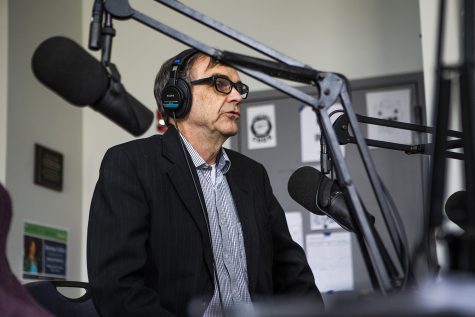
John Tinker discusses the events that led to the Tinker vs. Des Moines court case of 1969 during an interview with the Tinkers at the KRUI studio on Tuesday, February 26, 2019. Mary Beth and John wore black arm bands to school in protest of the Vietnam War.
John Tinker urged people to err on the side of protecting free speech, no matter the viewpoint being shared.
“If we prohibit this type of speech, where do you stop with that or can you stop with that?” he said.
Social pressure is a strong force, he said. He encouraged people to be mindful of when ideas are difficult to express and why that may be.
“People recognize that whatever it is you’re afraid to say, it’s very likely the same thing that you need to figure out how to say because society suppresses the ideas that somehow would threaten some protected but not very nice aspect of the society,” he said.
On college campuses and beyond campus boundaries, Mary Beth Tinker said, a challenge of this time is learning to speak to those with whom we disagree.
“It is a skill; you can learn it,” she said. “… Luckily, we do have a guide for that — it’s called the First Amendment, because in our democracy we believe that all viewpoints have a right to be heard.”
Click below to view a photo slideshow:
[ngg src=”galleries” ids=”3″ display=”basic_slideshow” interval=”2000″]



